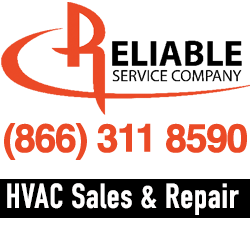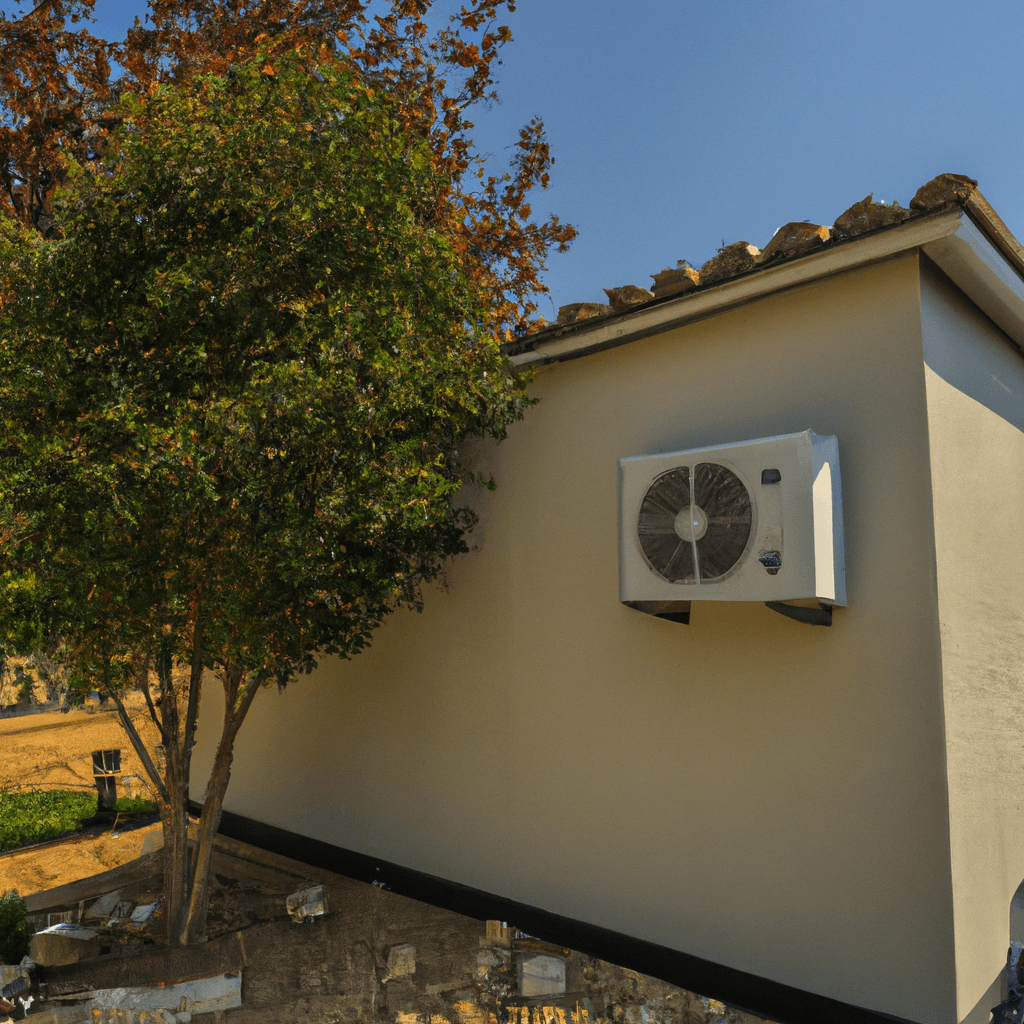A Beginner’s Guide to Central AC Units
In this modern age, air conditioning has become a vital part of our lives. It provides us with a respite from the sweltering summer heat and keeps us cool during the humid days. But what about Central AC units? Is there something unique about them such as energy savings or other advantages? Let’s take a look at the basics and what you should know about choosing and maintaining a central AC unit.
What is a Central AC Unit?
A central air conditioner (also known as a central AC, central air, and air conditioner) is a type of air conditioner that provides cooling for an entire home. It works by utilizing a system of ducts, vents, and fans to move cooled air around the home. This cool air is pumped into a space through a series of vents, which allows each room to feel comfortable. Unlike a window or wall unit, a central air conditioner can cool and dehumidify the entire home.
Advantages of Central AC Units
One of the major benefits of a central air conditioner is energy savings. Since it cools the entire home at once, you don’t have to keep turning the AC off and on in order to manage temperatures. This helps to save on energy bills, as the unit does not have to overwork itself in order to cool the entire house.
Central AC units can also be beneficial for people with allergies, as the air conditioning filters help to trap dust and other particles, preventing them from circulating through the home. This can help reduce the number of allergens in the air and provide relief from seasonal and year-round allergies.
Finally, central AC units are much quieter than their window or wall unit counterparts. The unit itself is located outside the home, so you don’t have to deal with the constant din of a window unit running. The only noise that you may hear is the occasional hum of the fan.
Choosing a Central AC Unit
When it comes to selecting a central AC unit, you have a few options. If you’re looking to save on energy costs and reduce your environmental impact, there are a number of Energy Star-certified units that you can choose from. These units are designed to be more efficient than traditional air conditioners, saving you money on electricity bills.
It’s important to also consider the size of the unit you need. For example, if you live in a smaller home, you may not need a large central AC unit; a smaller one may be more suitable. Additionally, you should consider any local Climate Zone regulations that may impact the type of air conditioning unit you install, since newer units are often more efficient and may qualify for tax credits.
Maintaining a Central AC Unit
In order to keep your central AC unit running properly, it’s important to perform regular maintenance. This includes checking the air filters regularly, cleaning the condenser coils, and lubricating the fan motors. Additionally, it’s important to have your unit inspected by a professional once a year in order to check for any potential problems and provide any necessary repairs.
To ensure that your central air conditioner is running at its most efficient, you should also set the temperature at a reasonable level. Too low of a temperature setting can cause the air conditioner to work harder and use more energy. You should also avoid using ceiling fans or other devices that can cause temperatures to become too high, as this can create an unnecessary strain on the unit and cause inefficient cooling.
Conclusion
Central AC units can be an excellent choice for keeping your home cool and saving money on energy costs. When selecting a unit, it’s important to think about size, efficiency, and any local climate zone regulations. Additionally, you’ll want to make sure to maintain your unit with regular inspections and cleaning in order to keep it running efficiently.
If you have any questions or require further assistance, you can always call your local reliable appliance repair to receive expert advice. With proper care, your central AC unit can keep your home cool and comfortable all summer long!



How to Avoid Central AC Unit Issues: Manufacturer and Technician Recommendations
It’s important to take preventive action if you want to ensure that your Central AC unit (or HVAC unit) is reliable and efficient. Whether it’s a manufacturer’s recommendation, or advice from local appliance companies and HVAC technicians, here are some suggestions to help you avoid potential AC issues.
Begin With Regular Maintenance
Regular maintenance is essential in keeping your air conditioning unit functioning properly. An HVAC technician should inspect the unit once a year, so any necessary repair work can be performed before the AC unit breaks down. Additionally, the technician should check the coolant levels, and make sure the connections are tight.
Turn Down the Thermostat
Setting your thermostat to a cool, yet moderate temperature can reduce your energy costs, as well as the risk of damaging your central AC unit. Altering the temperature or changing the cycles frequently can damage the AC unit and eventually result in an expensive and unexpected repair.
Know When to Replace the Filters
Filtering out airborne contaminants protects the AC unit, which is why it’s important to replace the filters every couple of months. Clogged filters can cause the unit to break down, as well as reduce the air flow and eventually damage the AC unit.
Consider Add-Ons
Since modern AC units are complex, it’s important to consider having add-on accessories, such as a programmable thermostat, an air purifier, or an indoor air quality control device. These additions not only increase the AC unit’s efficiency, but they also make it more convenient for you to manage the temperature at home.
Use Qualified Installers
A qualified installer should know exactly what type of equipment and materials to use when installing a central air conditioning unit, as well as be aware of local building code regulations. During the installation process, it’s essential to make sure all joints, connections, and hoses are properly sealed, and that the unit is properly situated.
Call the Experts
If you’re having any issues with your Central AC unit, or if you just want to prevent any future problems, it’s a good idea to call an HVAC technician for advice. Local reliable experts, such as Air Conditioning & Heating, are always available to help you get the most out of your air conditioning system.
By following the above-mentioned recommendations and investing in regular maintenance, you can ensure that your Central AC unit is in top condition, which will result in lower energy bills, fewer repair issues, and a longer functioning life.
Average Cost of Repairing Central AC Units in California
Looking to repair or install a central AC unit in California? Prices have been on the rise by as much as 20%, and the cost can be a major factor in any homeowner’s decisions. To get the most reliable and professional advice, call Local Reliable Air Conditioning & Heating. In the meantime, let’s discuss in-depth the average cost of central AC repair and installation.
Installation and Repair of Parts
The average costs may depend on the complexity of the repair, or on the parts required for installation. Here is a rundown of some of the most commonly needed parts as well as estimated costs:
- Compressor: from $250-$800.
- Evaporator Coil: from $400-$1,250.
- Ductwork: about $30 per linear foot.
- Refrigerant Lines: about $20 per linear foot.
- Freon Refrigerant: from $200-$400 per pound.
- Wiring and Piping: from $200-$500.
Labor Costs
On top of the parts, installation and repair services will also vary depending on labor costs. On average, repair services are estimated around $125 -$150 per hour, while installation services can be anywhere from $50 – $250 per hour.
Total Cost
To estimate the total cost of either installation or repair, one should add the cost of labor and parts together. For instance, a simple installation might be estimated to cost around $800-$1,000 while a more complex repair might be $1,500-$2,500.
When it comes to central AC unit repair and installation, your best bet is to contact a professional and experienced service to avoid overspending and get the most reliable advice and assistance. Contact Local Reliable Air Conditioning & Heating for all your AC needs.
Enjoy all-year Comfort With Central AC Units
When it comes to regulating the indoor temperatures of your home or business, having a reliable central air conditioning system is essential. Trustworthy Air Conditioning & Heating is a family-owned, California-based company that offers same-day repair and installation services on central air conditioning units.
At Reliable, all of the technicians are highly trained, with a minimum of 5 years’ experience on the field. The team is knowledgeable when it comes to Central AC units, offering you fair and affordable pricing for repair and installation services. All of their work is backed by a license and insurance, so you know your property is safe. Additionally, Reliable’s repairs come with a 90-day warranty to ensure you get the best results.
If you live in California and are experiencing problems with your Central AC unit, contact Reliable Air Conditioning & Heating for a same-day service. With their help, you can rest assured that your home or business will be comfortable all year round.
FAQ on Central AC Units
What is a central air unit and how does it work?
A central air unit is an all-in-one cooling system typically installed in a home. It pumps cooled air through air ducts that are spread throughout the entire house. Compressors, coils, and fans are all different parts of the unit that work together to cool down the air.
What is the difference between a Central Air Unit and an HVAC System?
A Central Air Unit is simply an external system for cooling the interior spaces of a building, while an HVAC system is Heating, Ventilation, and Air Conditioning. An HVAC system will not only cool the air, but it can additionally heat the air and filter air particles as well.
Will installing a Central Air Unit increase my energy bill?
Yes, installing Central Air Unit may increase your energy bill, if not used properly. Ultimately, it depends on how efficient the unit is and how it is being operated. If you ensure that windows are closed and the settings are not too high, you will be able to maintain a relatively low electricity bill.
Is it necessary to replace my filters regularly?
Yes, it is important to replace your filters regularly, such as every 3 months. Dirty filters can increase your energy usage and can reduce the indoor air quality of your home.
What should I do if my Central Air Unit isn’t cooling my home?
If your Central Air Unit isn’t cooling, then it is recommended that you consult with a local and reliable appliance repair team as soon as possible. They can assist you with analyzing and fixing the issue with your system.
If you are having issues with your Central AC unit and need assistance, please call Local Reliable Appliance Repair at (866) 311-8590.

